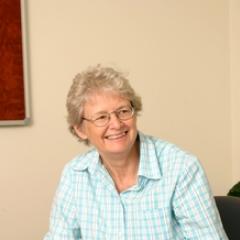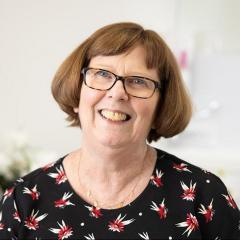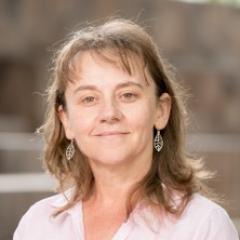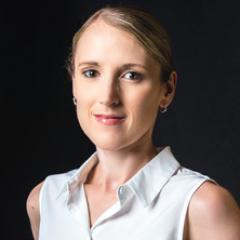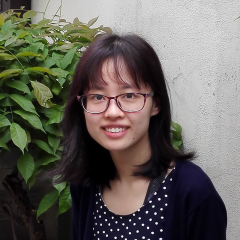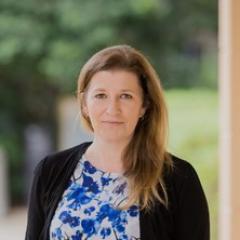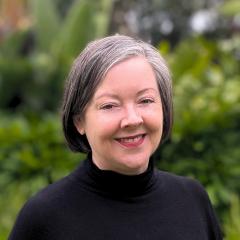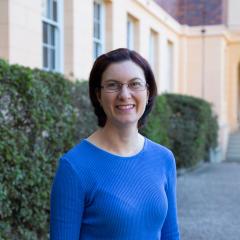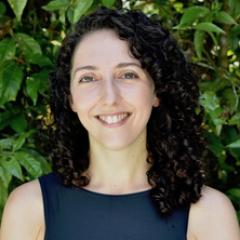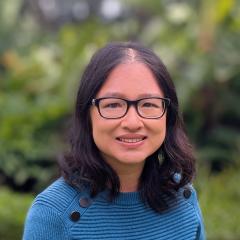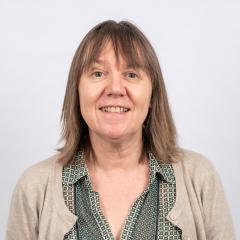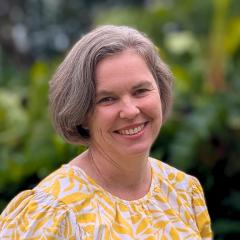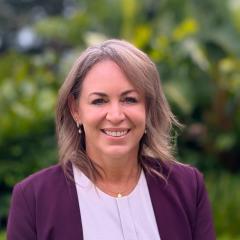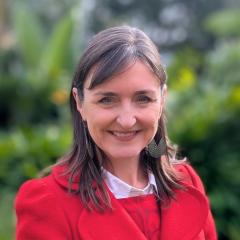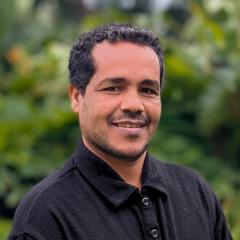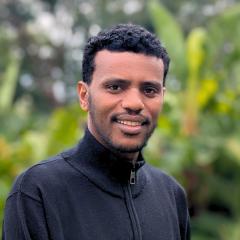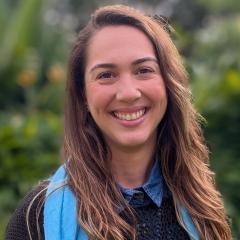Australian Women and Girls’ Health Research Centre
Epidemiology, Methodology, Policy
Our mission is to improve the health of women and girls across their life course – from pre-conception to older age – through epidemiological research, translation, and collaborations that bridge the gap between research and implementation.
The Australian Women and Girls’ Health Research (AWaGHR) Centre specialises in epidemiology of women and girls’ health, methodology, and knowledge translation into clinical practice and policy.
Our research sheds light on the interrelated biological, behavioural, and social factors that influence women and girls’ health throughout their life course. We recognise that the role these factors play during a girl’s childhood is critical to the future wellbeing of the woman she becomes, and to her future children’s health and development.
Together, we will create change in women and girls’ health by:
- Engaging with women, clinicians, and policymakers to establish research agendas that are relevant to women’s needs.
- Collaborating with experts to translate our research into policies, guidelines, tools, and programs that deliver real economic, societal, and health impacts.
- Supporting students and researchers to build capacity in women and girls’ health research and translation.
Acknowledgement of gender identity
We acknowledge that the boundaries around what “women’s health” incorporates are not always clear, and that sex and gender are distinct concepts. We research health topics related to the female sex (i.e. menstruation, childbirth, menopause). However, we acknowledge that not everyone who identifies as a woman experiences these female-specific health issues or identifies as female.
The Adolescent Menstrual Experiences and Health Cohort (AMEHC) Study
The Adolescent Menstrual Experiences and Health Cohort (AMEHC) study follows a cohort of 2,000 adolescent girls in Khulna, Bangladesh, from the start of their secondary schooling to understand how their menstrual health experiences and needs change over time, and to test the impact of menstrual health on their life outcomes. The study is undertaken in partnership with the BRAC James P Grant School of Public Health, Burnet Institute, and WaterAid Bangladesh. The study is funded by the Reckitt Global Hygiene Institute (RGHI), NHMRC and the Gates Foundation.
Australian Longitudinal Study on Women's Health (ALSWH)
The Australian Longitudinal Study on Women’s Health (ALSWH) is a cohort study funded by the Australian Department of Health. With over 50 thousand participants followed-up regularly since 1996, it is one of the leading studies of its kind in the world. The data, provided by four generations of women, has contributed to a wealth of health polices and guidelines at the state and national level.
Centre of Research Excellence on Women and Non-Communicable Diseases: Prevention and Detection (CRE WaND)
The National Health and Medical Research Council (NHMRC) funded the Centre for Research Excellence on Women and Non-communicable Diseases: Prevention and Detection (CRE WaND). CREWaND's vision is to redefine women’s health, moving it beyond reproductive and sexual health to encompass and prioritise non-communicable diseases detection and prevention.
CRE WaND Website
CRE WaND Resources
Genetic Epidemiology
Exploring how genetic factors influence health and disease across the life course of women and girls, leveraging data from biobanks, large-scale genetic studies, and the Australian Longitudinal Study on Women’s Health (ALSWH) to examine gene-trait interactions and their interplay with lifestyle and environmental factors. A key focus of this research program is investigating factors contributing to the risk of endometriosis, including subtypes of disease, to improve diagnosis and management.
Genetic variants, Early Life exposures, and Longitudinal Endometriosis symptoms Study (GELLES)
The Genetic variants, Early Life exposures, and Longitudinal Endometriosis symptoms Study (GELLES) aims to improve our understanding of the factors that put women at increased risk of endometriosis and delay its diagnosis. GELLES is a substudy of the Australian Longitudinal Study on Women’s Health 1989-95 cohort.
Heavy Menstrual Bleeding Decision Aid (HeMBDA) Study
The Heavy Menstrual Bleeding Decision Aid (HeMBDA) Study is investigating the experiences of women with heavy menstrual bleeding. We are particularly interested in what helps women to decide between treatments such as long-acting uterine contraceptive devices (such as the Mirena and Kyleena), endometrial ablation and hysterectomy. The study also aims to get feedback from women on tools that could be used to help them decide about treatment options for heavy menstrual bleeding.
Improving Australia’s Dementia Statistics
This project, funded by the NHMRC’s Boosting Dementia Research initiative, involves close collaboration with the Australian Institute of Health and Welfare and the Australian Bureau of Statistics to produce protocols and algorithms for the on-going production of high-quality data and summary statistics on dementia in Australia.
International collaboration for a Life course Approach to reproductive health and Chronic disease Events (InterLACE)
The InterLACE project combines data at the individual level from more than 800,000 participants from 26 existing observational studies to investigate the role of reproductive health across the life course on future chronic disease events including cardiovascular disease and type 2 diabetes mellitus.
The IVF Support Study - Improving emotional support during fertility treatment
The IVF Support Study is funded by an NHMRC Ideas Grant. This study will explore changes in coping, social support and mood across an in vitro fertilisation cycle (IVF). Findings from this study will be used to develop an online coping and support intervention for patients and information resources for partners and families.
MadeHER: Origins and Impacts of Menstrual Disorders and Pelvic Pain
Menstrual disorders – irregular, heavy, or painful periods – and pelvic pain are common among adolescent girls and disrupt life activities. Not enough is known about the maternal and early life factors linked with these conditions. The MadeHer Project addresses evidence gaps with new data on menstruation in adolescence, combined with previous data available from these girls and their mothers. The new knowledge on the development of these conditions will inform and guide their prevention and management. This study is funded by an NHMRC Clinical Trials and Cohort Studies Grant.
Menarche to pre-Menopause: Reproductive factors and risk of cardiometabolic and respiratory conditions (M-PreM)
The M-PreM project aims to understand how reproductive characteristics affect women’s chances of having chronic diseases and poor health later in life. The study will look at characteristics like the timing of women’s first period (menarche), period symptoms, pregnancy, and pelvic problems. M-PreM is a substudy of the Australian Longitudinal Study on Women’s Health’s 1973-78 cohort.
Mothers and their Children's Health study (MatCH)
The Mother’s and their Children’s Health (MatCH) study takes a life course approach to investigate the influence of preconception maternal health and wellbeing on the growth and development of children. This project is a substudy based on the children of the Australian Longitudinal Study on Women’s Health’s 1973-78 ALSWH cohort.
The Mothers and their Children’s Healthcare Experience Study (MatCHES)
The Mothers and their Children’s Healthcare Experience Study (MatCHES) is investigating women’s experiences of preventive healthcare from before conception through to pregnancy and early childhood. MatCHES is a substudy of the 1989-95 cohort of the Australian Longitudinal Study on Women’s Health.
Moving beyond one-size-fits-all: Exploring the optimal doses of physical activity and sedentary behaviour across the lifespan for prevention of non-communicable chronic diseases
It is well known that physical inactivity is a risk factor for the development of non-communicable chronic diseases. This NHMRC funded research program will determine the optimal doses of physical activity and sedentary behaviour during childhood, adolescence, adulthood and old age to prevent mental and physical health conditions. This research program will inform the development of strategies to reduce the social and fiscal burden of non-communicable chronic diseases in Australia.
Our team is internationally recognised for their extensive experience in women and girls’ health research. We use rigorous methodological approaches to drive meaningful impacts on knowledge, health and gender equity. Our research blends expertise in life course epidemiology and biostatistics, global and population health, and health systems research, with attention to the diverse determinants of health disparities and pathways to improving healthcare and policy.
Our Centre’s research and translation activities are built on five intersecting pillars of expertise:
- Life course epidemiology
- Genetic epidemiology
- Methodology
- Health equity
- Clinical practice and policy
The AWaGHR Centre is seeking exceptional and highly motivated PhD candidates to undertake research on a range of projects associated with women and girls’ health.
The Centre conducts research on a broad range of health issues across the human lifespan and is located at the University of Queensland’s School of Public Health at the Herston Campus, Brisbane, Queensland.
The Centre has a range of projects to offer, from studying the intra- and inter- generational effects of socio-economic, behavioural, and lifestyle factors on a range of health, wellbeing and health service use outcomes. We also offer projects associated with statistical methodology in longitudinal and life course data.
PhD projects will be based on data from the following studies:
- The Australian Longitudinal Study on Women’s Health (ALSWH) is a cohort study funded by the Australian Department of Health. With over 50 thousand participants followed-up regularly since 1996, it is one of the leading studies of its kind in the world.
- The Mother’s and their Children (MatCH) project, based on all the mothers of the ALSWH 1973-78 ALSWH cohort, takes a life course approach to investigate the influence of preconception maternal health and wellbeing on the growth and development of all her children.
- The Genetic variants, Early Life exposures, and Longitudinal Endometriosis symptoms Study (GELLES) aims to improve our understanding of the factors that put women at increased risk of endometriosis and delay its diagnosis.
- The Mothers and their Children’s Healthcare Experience Study (MatCHES) is investigating women’s experiences of preventive healthcare from before conception through to pregnancy and early childhood.
- The National Health and Medical Research Council funded Centre for Research Excellence on Women and Non-communicable Diseases: Prevention and Detection (CRE WaND), is based around ALSWH and record linkage with administrative and other data sets including birth and death records, hospitalisation, cancer registration, pharmaceutical and other health service use.
Register your interest
Help create change in women and girls’ health! Get involved! Join the AWAGHR Centre community and register for:
- News and updates on women’s health research
- Opportunities to participate in research
- Invitations to community events and health information sessions
For more information or to join, reach out at: awaghr@uq.edu.au.


